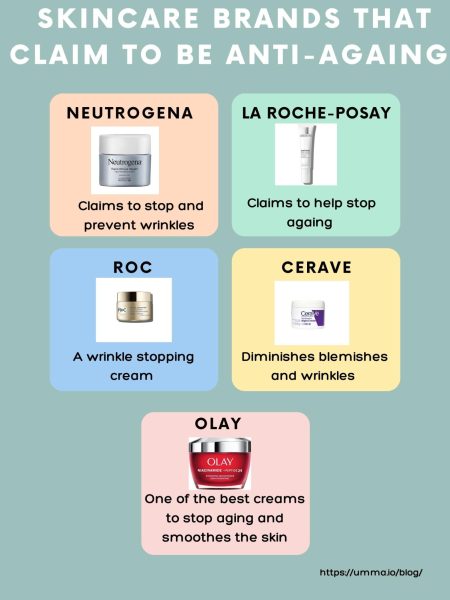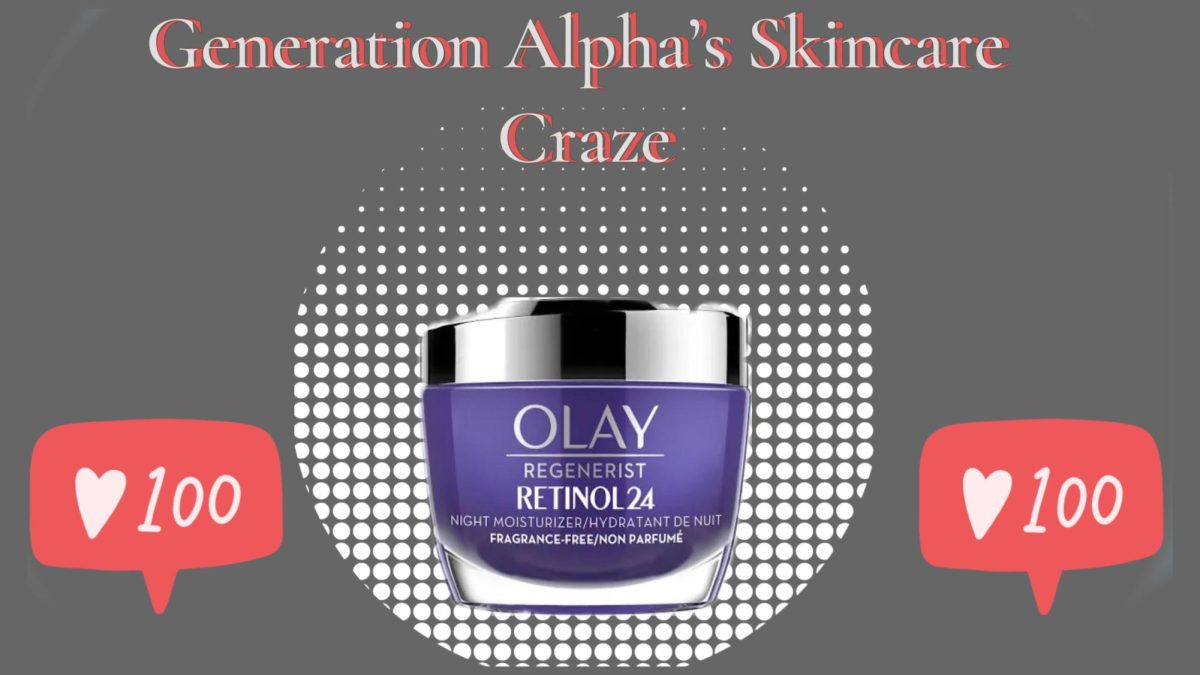The recent rise of skincare infatuation among Generation Alpha (Gen Alpha) has caused growing concerns among older generations. The skincare obsession creates economic, psychological and physical impacts on people born from 2010 to 2024. As this trend progresses, consequences overwhelm society.
“Gen Alpha is growing up so much more different than us and is all a result of the media and how they’re raised. I remember when I was little all I wanted for Christmas was Barbies, but now kids want Stanley cups and anti-wrinkle straws. We didn’t grow up with this kind of social media, we wanted toys and not retinol,” sophomore Ashley Hendershot said.
The decline of third spaces, also known as communal spaces, forces people to turn to virtual reality in order to fulfill their needs of social interaction and entertainment, while also creating a life-long reliance. Gen Alpha, the only generation that will not know a world before cell phones, lives in a society that prefers social interaction online rather than in person. Social media contains multiple communal spaces: peers, sociability and interaction, but it also holds severe toxicity. As social media developed, companies latched onto profitable opportunities such as the wider diversity of groups to advertise to. This severely influenced the content that users, specifically Gen Alpha, see daily. With a lack of content specifically designed for Gen Alpha, in addition to the norms capitalistic societies force upon the working class, the content begins to morph into one giant advertisement, rather than playful entertainment. The uprising trend of anti-aging skincare seriously affects Gen Alpha daily due to the harsh advertisements.
Sponsored get-ready with me videos, Ulta hauls and Sol-De Janeiro obsessions all promote overconsumption, false beauty standards and aging-anxiety in kids. Gen Alpha has contributed to 49% of skincare sales growth as of 2024, and the economic footprint of Gen Alpha may outgrow Generation Z and Millennials combined by 2029. Unfortunately, the impacts of the skin-care craze do not only impact the economy but also the mental health of users on social media. 15% of Gen Alpha kids feel depressed about aging, and over 51% spend over $100 on anti-aging skincare products per month. When put into perspective, 24% of Millennials and only 15% of Generation Z spend that amount of money and the economic issues become clear.
Such beauty products harm not only the brains of young consumers but also their skin. Anti-aging products contain inherently harsh chemicals such as retinol and hydroxy acids. These ingredients may stimulate cell production and collagen when used on aged skin, which helps tissue regeneration. Unlike when used on young skin, these products lead to skin irritation, redness, peeling and hypersensitivity which may cause permanent scarring and premature aging.

“I would just say that the need Gen Alpha has for Drunk Elephant and skin care products when they don’t need it is a result of early social media access and influence from older people trying to tell them what’s trendy and what’s not. And [companies] trying to play into [Gen Alpha’s] insecurities. It’s insanely easy to market to children because they are so easily influenced,” sophomore Grier Coats said.
As the popular saying states, “beauty is more than skin deep.” Yet, online society seems to stray far from believing that statement. Social media focuses on money and profit rather than the health and safety of individuals on the apps. The skincare craze caused severe psychological, fiscal and physical impacts on Gen Alpha. If this trend continues, the consequences will only become increasingly widespread and severe.


















